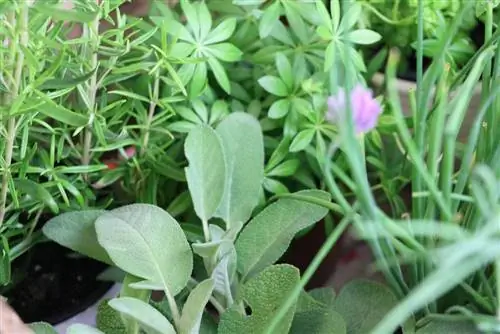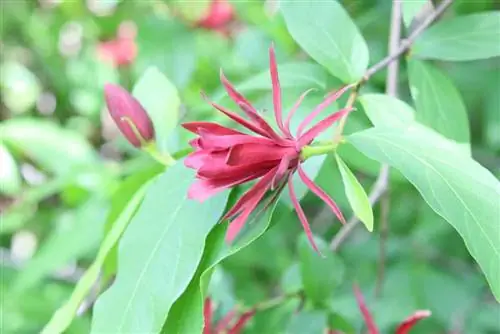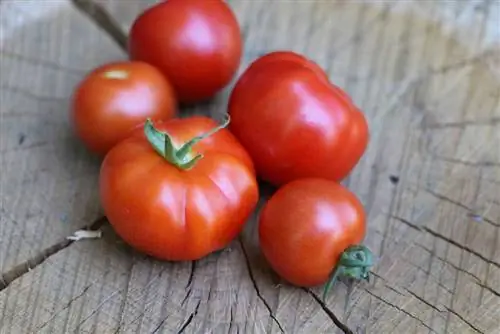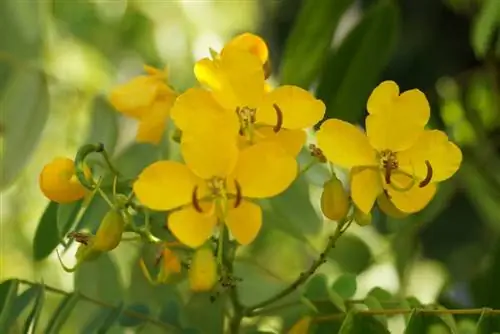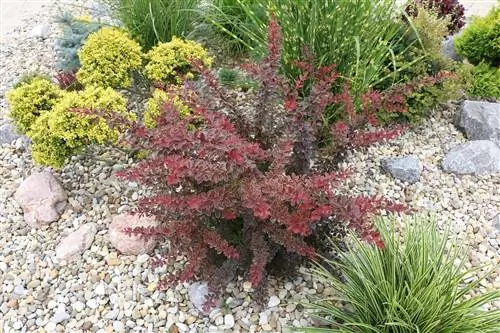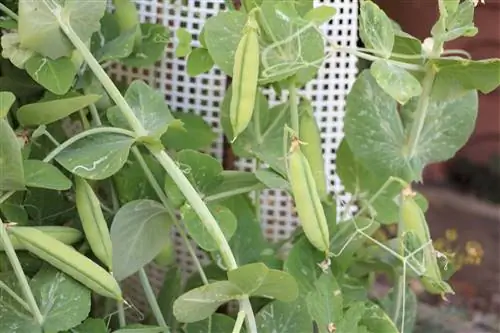- Author admin caroline@plants-knowledge.com.
- Public 2023-12-17 03:39.
- Last modified 2025-01-24 12:45.
In Germany, by far the most popular herbs include chives, parsley and basil. There are many more herbs that can be grown in your own garden and thus refine your home cuisine. By the way, various herbs can also be pleasing to the eye from a decorative point of view.
Spice plants in the garden are more than just a side dish
Spice plants such as basil, chives, spring onions, thyme, marjoram, oregano, rosemary and many others are much more than a decorative side dish that refines various dishes. The flavors and fragrances in the spices also have a very positive influence on he alth.
Most herbs contain plant substances that kill bacteria introduced through food. So there is one more reason to plant spice plants in the garden, because it is recommended to eat vegetables and fruit five times a day and to use a variety of herbs and spices.
Growing herbs in the garden
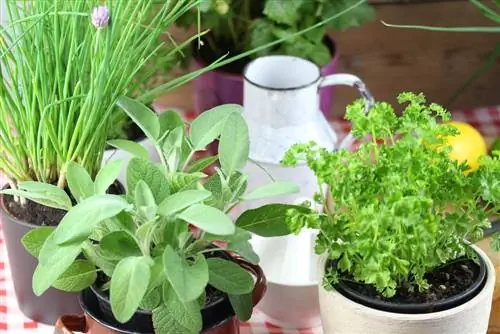
Some herbs can be found in the wild, while others can be easily cultivated in the garden or even on the windowsill. Herbs in the garden are always beautiful to look at and can be picked and used straight away with just one touch. A whole range of herbs are perennial and therefore do not need to be re-sown every year.
Chives are one of the most popular herbs in Germany and sprout their tubular leaves from the ground early in the year. You can easily sow it directly into the bed or into small pots. Beautiful purple flowers can be seen from May to August and can also be eaten. The taste is quite spicy and so the flowers are used more as a decoration. If necessary, chives can easily be cut off with scissors and can also be cut into dishes as they should not be chopped.
It's also worth knowing that chives are perennial plants, so they grow again and again. In terms of location, a calcareous, humus-rich and moist clay soil is best suited. It feels most comfortable in a sunny to partially shaded location. The chives also tolerate fertilizer very well.
Parsley is just as easy to cultivate. Parsley likes to be very bright, but not in direct sun. You have to be very careful when watering because it can't tolerate too much water. Therefore, the parsley should only be watered when the top layer of soil has dried again. Fertilized with a liquid thinner every one to two weeks, the parsley can grow vigorously. Sowing parsley is just as easy as caring for it. The seeds are sown in normal potting soil in a pot or in the bed. The germination time is only a few days. When harvesting, you should definitely make sure that the so-called heart is protected. It's right in the middle and shows up as new, smaller leaves. If it is damaged, no more leaves can grow.
Of course, these are just a few examples of growing herbs in the garden. You can get inspiration for what else is possible in a garden center or in a well-stocked hardware store, here in the garden department.
Bags with the seeds can be found here. Everything you need to know about cultivation, care and harvesting is written on the back. It is important that the bags are neither open nor wavy. In the last case, the seeds have already gotten wet once, which reduces their ability to germinate.
Overwintering spice plants in the garden
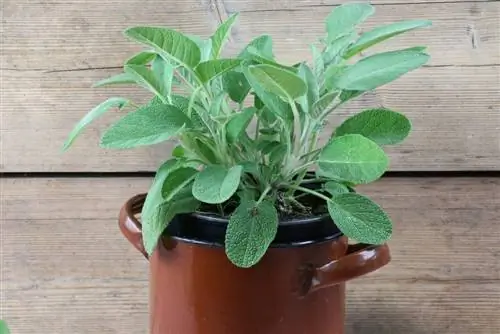
In order to always be able to access fresh herbs from the garden, you should prepare for the winter during the flowering period. Herbs can be preserved incredibly well and so you can enjoy spicy basil, fragrant lavender and many other culinary herbs fresh even in the dead of winter.
If they are teas, they should be harvested dry before flowering and then dried. Herbs that are used for seasoning, such as parsley, dill, basil or chives, can easily be frozen after harvesting. To do this, the individual fresh herbs are cut and ideally packaged in portions and frozen. Herbs can also be processed into herbal vinegar or herbal oil and thus preserved.
There is nothing special to consider when overwintering the spice plants in the garden. They should be trimmed in autumn. Annual plants, on the other hand, must be removed with their roots and not sown again until next spring.
Basic information about aromatic plants in the garden
Spice plants in the garden serve many different purposes. They ensure varied and he althy cuisine, refine salads, dishes, dressings and much more and are also beautiful to look at. Cultivation is easy and the maintenance effort is also limited. Therefore, herb corners in the garden are particularly recommended for families with children, because for children it is a wonder how something edible grows from small seeds.
Conclusion
You don't have to go without spice plants if you don't have a garden. Many plants also thrive in pots on the windowsill in the kitchen.

